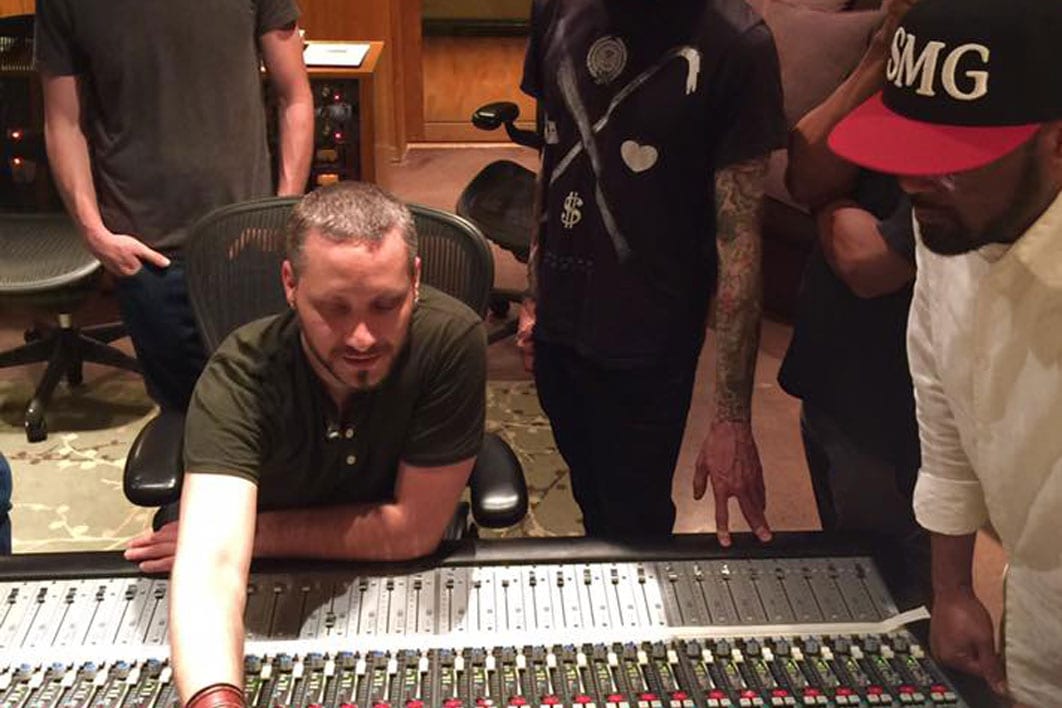A mentor’s experience can serve as a template, their knowledge can be a source of perspective and their connections may serve as gateways … if you hold up your end of the relationship.
IN THE MUSIC BIZ, who you know is often as important as what you know. Talent and drive are invariably crucial components to a successful career, but without the proper connections, opportunities and guidance, many music creators will fall short of their full potential. For this reason, more and more aspiring musicians can benefit from working with a mentor, who could be anyone from a celebrity musician, to a family friend who works in the industry, or just someone who really knows their stuff. A mentor can benefit an endeavoring professional in a number of ways — their experience can serve as a template for a developing career, their knowledge can be a source of perspective on subjects that would otherwise seem unclear to one who hasn’t yet “traveled the path,” and their connections may serve as gateways to a larger industry network.
Attending ASCAP EXPO
At each ASCAP EXPO, industry masters hold personalized one-on-one sessions with attendees. We spoke with a few who were there in 2018 about how to make the most of a mentor in the music industry.
GRAMMY-nominated producer and engineer Doug Fenske is the Director of Education at Crē•8 Music Academy, a professional music production school based in the heart of West Hollywood. The academy offers courses in conjunction with the legendary Westlake Recording Studio, and since the school’s inception has placed enormous emphasis on mentoring aspiring music industry creatives through their career development. Fenske is well aware of the abundance of resources and platforms for collaboration online, but still preaches the benefits, and even indispensability, of having a mentor. He says that having someone give you the ins and outs “cuts years off of [inevitable] trial and error.” Having experienced it himself, Fenske recalls how much time and effort can be preserved by steering clear of unknown dangers. “People who have more experience in the music industry…are the ones who can guide aspiring individuals through the process and help them to avoid some of those pitfalls.” In an industry where unique, niche artists are so prevalent, personalizing the process of finding an audience is of utmost importance.
One-on-one mentoring sessions for the 2019 EXPO
are currently available on a limited basis at ascap.com/expo
Al Machera, Fenske’s colleague and Campus Director at Crē•8, says that an essential component of making the most of a mentor is finding an appropriate fit. According to Machera, finding someone with a compatible personality is important, as you should feel com comfortable working and speaking with your mentor day to day. “A good mentor is able to move with you. It’s not just a business relationship. It’s a personal relationship.” Regardless of how well-connected or experienced a mentor may be, ease of communication should always be a top priority. The best mentor is someone who takes an interest in and has an understanding of your personal needs and goals. Machera believes that not only should a good mentor’s experiences align with the aspirations for your career, but he/ she should have a genuine interest in your craft and be willing to put in the time and energy it takes to see you succeed. He highly recommends asking a series of questions to determine if someone is going to be a good fit: “What kind of person are they aside from the business? Are they enthusiastic about what they do? Are they going to be completely honest with you?” It’s important to seek out someone who can inspire — but it’s constructive criticism that you need.
After Finding a Suitable Mentor
Once you think you’ve found a suitable mentor, they then need to be convinced that you’re worth their time. There are ways to stand out and demonstrate your potential. As Fenske explains, most mentors are looking for someone who is going to take their advice seriously. “As long as you are a driven individual, regardless of where you’re at in the arc of your career, a mentor will want to [take you on] because they recognize that…you really want to be a true professional.” Fenske says mentors understand that career development is a process that takes time. No one expects you to develop overnight, but you have to show that you’re dedicated to your craft. And keep in mind, even if you are already a professional, you may benefit by working with
Mike Ramsey, Director of Artist and Career Services at Hollywood’s Musicians Institute, has guided hundreds of students throughout their careers in the music industry. He gave us a few strategies for you to use in your next session. First, be ready and willing to step outside of your comfort zone; one of the central reasons for working with a mentor is to come up with new experiences and ideas that you may not have considered before. Next, listen to the mentor’s past mistakes and learn how to avoid similar situations. As Fenske pointed out, your time is highly valuable and it is important to learn exactly how to make the most of it. Your mentor’s time is valuable as well, so make sure to be prepared for any interactions, think through your positions, and express yourself as succinctly as possible. Finally, you get out of it what you put into it. It’s important to show that you value the relationship with your mentor and are ready to invest the time and effort to make the partnership a success.
One-on-one mentoring sessions for the 2019 EXPO are currently available on a limited basis at ascap.com/expo




Leave a Reply